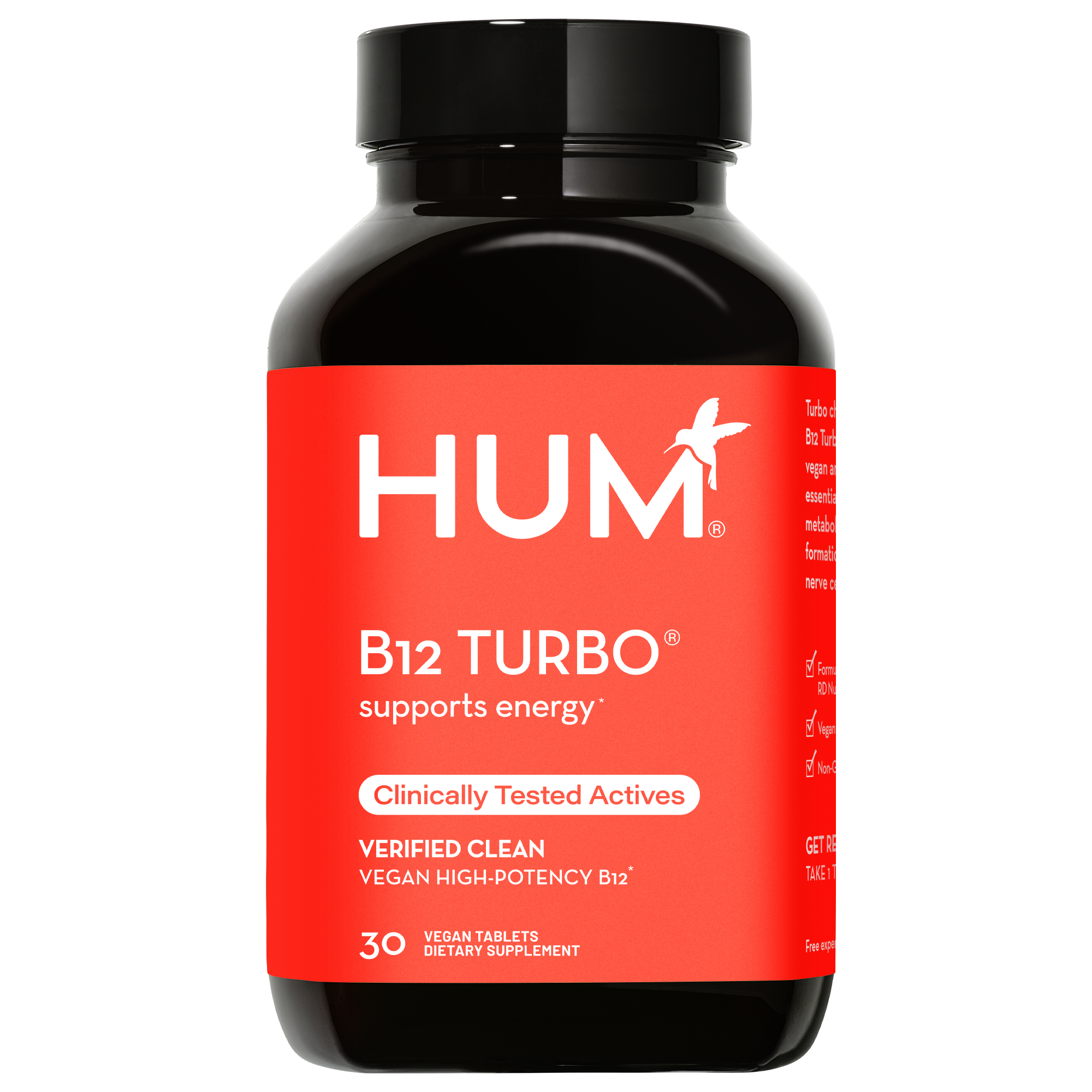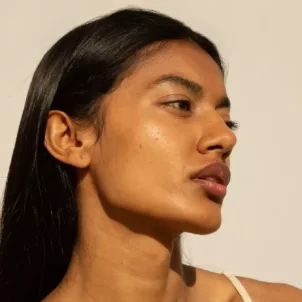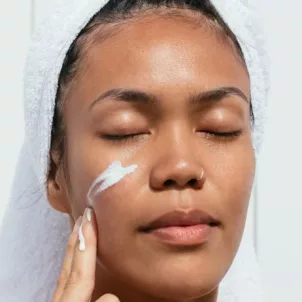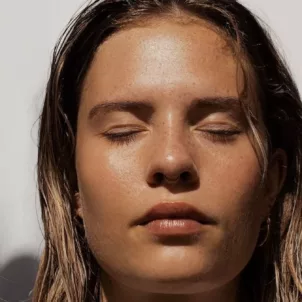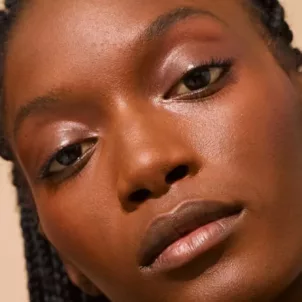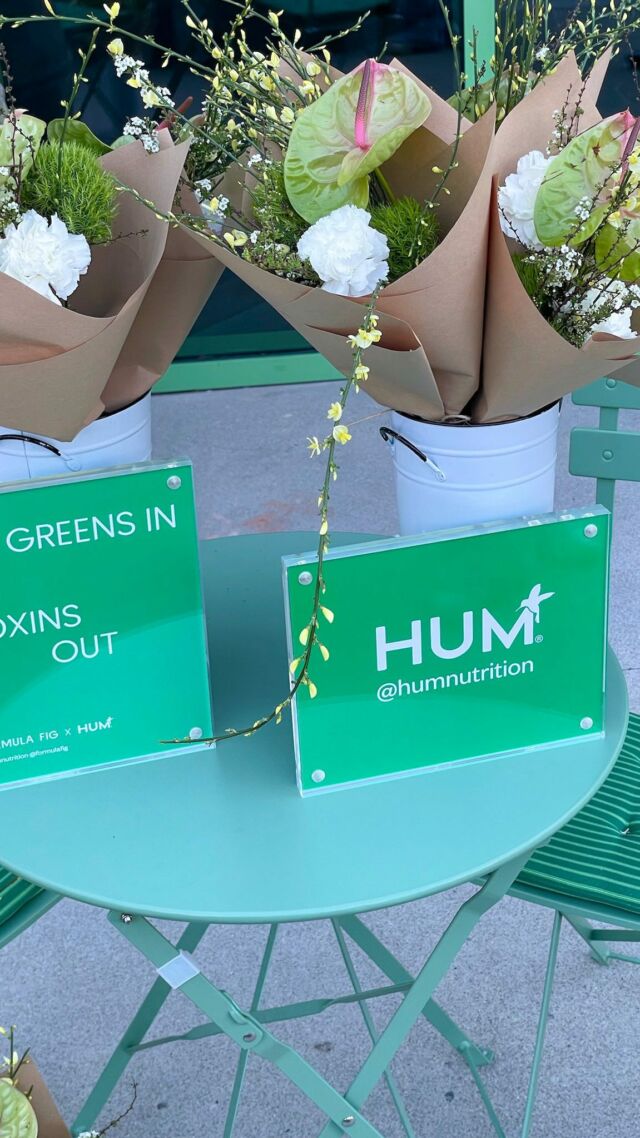There are so many causes of acne—from genetics to hormones to daily habits. But one surprising cause might be a deficiency in a certain nutrient. Experts explain how B vitamins and acne are linked, below.
Acne breakouts are frustrating, to say the least. And while you might have luck here and there with a pimple patch or drying cream, nothing gets rid of acne like getting down to the root cause of a breakout. While pimples can show face for a multitude of reasons, one common nutrient deficiency might be the reason you’re constantly playing Whac-A-Mole with your complexion, and it’s woefully underdiagnosed and treated. We’re talking about vitamin B deficiency, and how its lack of presence in your diet could get in the way of clearer, more radiant-looking skin.
“Skin health is not typically the first thing that comes to mind when considering a B vitamin deficiency, but being deficient in these water-soluble vitamins can wreak havoc on your skin,” says Lisa Richards, a nutritionist and author of the Candida Diet. “Because they are vital to cell renewal and balancing stress responses, lacking in these vitamins can cause acne breakouts, cracked skin, and rashes,” she adds.
Discover how vitamin B and acne are linked, plus how to tell if you’re deficient in this essential vitamin complex (and what to do about it), ahead.
How a Deficiency in Vitamin B Causes Acne (and Other Skin Conditions)

Vitamin B consists of eight essential nutrients that play an important role in the body’s function and overall health. When a deficiency occurs in one, some, or all B complex vitamins, it can show up on your skin in a variety of concerning ways, including making your skin more prone to acne breakouts (or making current acne breakouts worse). Here are all the ways a deficiency in vitamin B affects the skin.
Acne
No matter what B vitamin you’re deficient in, Richards says it can show up in the form of acne breakouts. “Of the eight B vitamins, a deficiency in nearly all of them can lead to an acne breakout,” she explains. Since B12 is anti-inflammatory, a deficiency in this essential vitamin can make existing acne worse without that additional line of defense. “Biotin is naturally anti-fungal, making a lack of this B vitamin cause and exacerbate acne,” says Richards. Additionally, B2 is necessary for zinc absorption, which is a mineral known to reduce the swelling and redness caused by acne.
Rashes
“B vitamin deficiencies can lead to skin rashes and seborrheic dermatitis,” says Richards. One of the most important B vitamins for rash prevention is Biotic—aka B7—which is known for its anti-inflammatory and anti-fungal properties and can help prevent and ward off itchy and uncomfortable skin rashes. Another specific sign to look out for of vitamin B12 deficiency is cracked lip corners.
Wrinkles
According to Richards, B vitamins are also anti-aging, as they are important for skin hydration and their anti-inflammatory impact on the skin. “When the skin is chronically dehydrated, it is more prone to dry, flaky skin and, ultimately, wrinkles,” says Richards.
Hyperpigmentation
Another way a vitamin B deficiency shows up in the skin is through skin color, particularly hyperpigmentation. According to research, this vitamin B deficiency symptom is more common in those with darker skin types and is caused by an increase in melanin synthesis
How to Know If You Have a Vitamin B Deficiency
The best way to know if you are deficient in any B vitamins is through bloodwork, which can tell you whether or not you have a deficiency and, if you do, how severe the deficiency is. If you are vegan, vegetarian, or otherwise eat a heavily plant-based diet, you should have your levels checked more regularly, as B vitamins are mainly found in animal products.
With that said, there are some symptoms that could indicate a vitamin B deficiency and prompt you to schedule a bloodwork appointment with your doctor. “Fatigue is one of the most obvious and first signs of B vitamin deficiencies,” says Richards. Other symptoms of vitamin B deficiency include:
- Heart palpitations
- Unusual paling of the skin
- Loss of appetite
- Headaches
- Tinnitus
- Breathlessness
Vitamin B12 deficiency, in particular, is something to be mindful of. According to Richards, a deficiency in B12—also known as pernicious anemia—can cause extreme levels of fatigue and weakness. “B12 is also vital for synthesizing and metabolizing serotonin, the chemical responsible for mood regulation,” Richards notes, adding that being deficient in vitamin B12 can result in mood swings, too. Vitamin B complex is also important to metabolism health and proper levels of B vitamins can lead to a metabolism boost, which can impact digestion and energy.
What Foods Are the Best Source of B Vitamins?
The best way to get your B vitamins is through diet. “B vitamins—especially B12—are most commonly found in animal products,” says Richards. If you don’t eat animal products, you can still get vitamin B in plant-based forms, however, Richards says they are most often fortified with the nutrient to increase the content of vitamin B. For vegetarian or vegan foods rich in vitamin B, look to legumes, dark leafy greens (such as kale), nutritional yeast, and fortified cereals for this essential nutrient.
As for animal products, you can find vitamin B abundant in organ meats, salmon, eggs, milk, beef, poultry, and oysters, which Richards says are great for those with a vitamin B deficiency.
Vitamin B Supplements
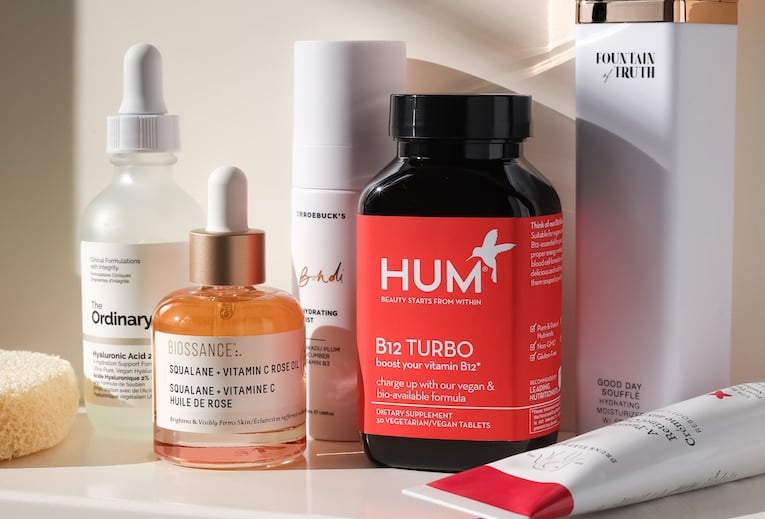
Those who experience a vitamin B deficiency might benefit from supplementing the nutrient. “Because B vitamins are water-soluble, they cannot reach a toxic level in the body, making supplementation a great option,” says Richards. Depending on how exaggerated a vitamin B deficiency is, Richards says it might be best to combine vitamin B-rich foods and a supplement to ensure your body gets enough of the nutrient.
Your blood work—and doctor’s advice—will determine what type of vitamin B supplement to take for a deficiency. However, if you have a deficiency in more than one, you won’t need to pop multiple pills. “B complex vitamins are great for those with more than one B vitamin deficiency because they contain all eight in sufficient amounts,” says Richards.
You can also find B complex included in multivitamins (such as HUM’s Base Control), which can be an efficient and effective way to get the boost you need. However, if you are particularly low in B vitamins, your doctor might recommend supplementing with more B vitamins, such as B12, in addition to your daily multi. (HUM’s B12 Turbo is made with the most bioavailable form of B12 and fortified with calcium.)
